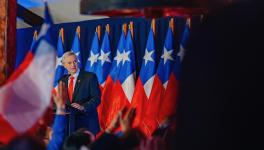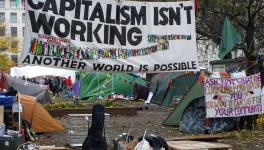Why Economic Inequality is a Burning Issue that Needs Attention
Wealth and income inequality are more than just economic concepts. They also influence education and health outcomes, poverty levels, employment and unemployment rates, opportunities, choices, and, ultimately, happiness. Of late, several reports have investigated the impact of COVID-19 on various segments of society at the regional, national, and international levels. They demonstrate how restrictions and lockdowns during the pandemic exacerbated pre-existing income and wealth disparities.
A new report by Oxfam and the Development Finance Institution (DFI) has revealed that most governments failed to take necessary steps to combat the explosion of inequality caused by COVID-19. Sometimes, governments ripped away public services when people needed them most. Others let billionaires and big corporations off the hook to reap record profits.
The situation demands an integrated and inclusive public policy to help the vulnerable cope. The Oxfam-DFI report and global ranking—2022 Action to Reduce Inequality (CRI) Index—based on what governments did to reduce the poor-rich gap could be a starting point. It is the first in-depth analysis of official policies and actions to address the inequality that reviews spending, taxation policies and labour policies and actions for the first two pandemic years from 2020 to 2022 in 161 countries.
The CRI 2022 says 70% of countries reduced their share of education spending, while two-thirds failed to raise the minimum wage based on the gross domestic product (GDP). Further, 95% of countries did not increase taxes on the wealthiest people and businesses.
Recall the Oxfam report published in May, “Profiting from Pain”, which said that the COVID-19 pandemic produces a new billionaire every 30 hours, while every 33 hours could push nearly ten lakh people into extreme poverty this year. By 2022, 19.8 crore more people will live in extreme poverty, according to the World Bank, reversing two decades of progress. According to another Oxfam estimate based on World Bank data, an additional 6.5 crore people may enter extreme poverty this year due to rising food prices globally. This would bring the total number of people who may become extremely poor to 26.3 crore.
Even before the pandemic, the world was already very unequal. But the inequality gap widened after 2019 due to a lack of policy measures, a failure that damaged the poor the most. Unless governments and the international community act urgently, the deep rise in inequality and poverty due to the pandemic will soon become permanent, and governments will lose a decade fighting it.
The CRI report reveals that most governments failed to mitigate the dangerous rise in inequality during the worst global health emergency in a century. Half of the low- and lower-middle-income countries have seen their share of health spending fall during the pandemic. While the K-shaped recovery path is the talk of the town, it essentially means that the recovery will be unequal too. This is a warning for policymakers and economists that the poorest regions and people will suffer the longest and be the worst off even if the pace of economic recovery picks up.
The CRI makes it clear that governments which focus on three key policy areas—social spending, taxation and labour rights—can overcome the problem of inequality. There is widespread evidence that strong progressive action by governments in these areas can significantly reduce inequality. However, despite India’s marginal gains in reducing inequality during the pandemic (rising six places from 129th in 2020), it is mainly due to indicators that quantify the impact of public spending and tax on reducing inequality. Indeed, its gains are despite India featuring among the bottom ten spenders on public services, as it is ranked 157th in the Index.
India also lags in spending on health, education and social security. It moved up six places in the ranking but still ranks last on healthcare spending. That is a drop of two more places to 157th compared with 2020, making it the fifth-lowest spender on health.
India slightly reduced its healthcare spending between 2019 and 2021 in times of an unprecedented healthcare crisis, a decision that got widespread criticism. The government’s response to COVID-19 aside, its neglect of much-needed improvements in healthcare is regretfully still going on. Healthcare expenditure in India accounts for 3.64% of total expenditure, the lowest among BRICS and neighbouring countries. In South Asia, Pakistan spends 4.3% of total spending on healthcare, Bangladesh 5.9%, Sri Lanka 5.88%, and Nepal 7.8%.
One of the most alarming aspects of the report is it reclassifies India as a nation lacking a national minimum wage. It has dropped a hefty 73 spots in the rankings for minimum wages and is now included on the report’s list of 12 nations (including Bahrain, Cambodia, Ethiopia, Lebanon, Oman, Singapore, South Sudan, St Lucia, Tonga and Tuvalu) where the “application of a national minimum wage has broken down” since 2020.
Despite tremendous fiscal pressure, 143 out of 161 countries froze tax rates for the wealthiest, and 11 actually cut them.
A mere six-place improvement in the CRI ranking for India is not particularly impressive, seen on a global scale. Countries with lower GDPs than India have fared better in the fight against inequality during COVID-19. Despite fragility, Tajikistan rose 37 spots, the Maldives climbed 33 places, Bhutan rose 30 spots, and the Occupied Palestinian Territory (OPT) rose by 19 spots.
It is difficult to sustain growth while inequality continues to rise. India is now the fifth-largest economy in purchasing power parity terms, but 19.3% of its children are wasted, the highest rate in the world. Development should not be confined just to GDP growth. The GDP fetishism of neo-liberal policymakers has always supported widening the inequality gap. Inequality is not natural but manufactured, so it is time to rethink adequate policy measures to counter it.
Atman Shah is an assistant professor of Economics at St. Xavier’s College (Autonomous), Ahmedabad, and Dipak Chaudhari is an assistant professor of Economics at Abhinav College, Bhayandar (E), Mumbai. The views are personal.
Get the latest reports & analysis with people's perspective on Protests, movements & deep analytical videos, discussions of the current affairs in your Telegram app. Subscribe to NewsClick's Telegram channel & get Real-Time updates on stories, as they get published on our website.
























